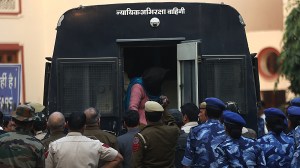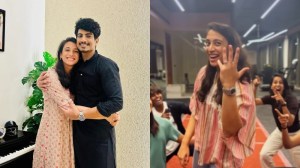Click here to follow Screen Digital on YouTube and stay updated with the latest from the world of cinema.
As NCERT cuts out Mughals from Class 7 history books, R Madhavan asks why only 1 chapter on Cholas, Pandyas: ‘They ruled for 2400 years’
R Madhavan claimed that the Britishers' version of history whitewashed the events at Jallianwala Bagh.
 R Madhavan was last seen in Kesari 2.
R Madhavan was last seen in Kesari 2.R Madhavan, who recently played a fictional character in Karan Singh Tyagi’s film Kesari Chapter 2, also starring Akshay Kumar, said that he will “probably get into trouble” for raising objection about history syllabus being taught in Indian schools. The actor said during his younger days, there was more study material on Mughals, than the Cholas and Pallavas.
His comments come in the midst of the National Council of Educational Research and Training (NCERT)’s decision to remove major portions about the Delhi Sultanate, ruled by many dynasties including the Mamluks, Tughlaqs, Khaljis and Lodis, and the Mughal empire from the Class 7 history textbook. Along with these cuts, portions about social movements in contemporary India and caste system have also seen deep cuts. The new additions in the textbooks include new content in textbooks include government initiatives such as Make in India, Beti Bachao Beti Padhao, and how land becomes sacred through pilgrimages such as the Char Dham Yatra, visits to Shakti Pithas and Jyotirlingas.
“I might get into trouble for saying this, but I’ll still say it. When I studied history in school, there were eight chapters on the Mughals, two on the Harappa and Mohenjo-daro civilizations, four on British rule and the freedom struggle, and just one chapter on the southern kingdoms — the Cholas, Pandyas, Pallavas, and Cheras,” he said and compared the timelines for each period.
“The British and the Mughals ruled us for close to 800 years, but the Chola Empire is 2,400 years old,” he claimed. Cholas ruled from the seventh century to the thirteenth century, which is approximately 500 years, Britishers ruled in India for almost 200 years and Mughals were present in the sub-continent for around 300 years. He said, “They were pioneers of sea travel and naval power. They had spice routes that extended to Rome. Where’s that part of our history? Where’s the mention of us building temples all the way to Angkor Wat with our mighty naval forces? Jainism, Buddhism, and Hinduism spread to China. People in Korea speak half Tamil because that’s how far our language reached. And we encapsulated all of this in just one chapter.”
He then criticised the history syllabus in schools and claimed that even though Tamil is the oldest language in the world, nobody knows about this. “Whose narrative is this? Who decided the syllabus? Tamil is the oldest language in the world, but nobody knows about it. The scientific knowledge hidden in our culture is being mocked right now,” he said.
He also said that Britishers created a “false narrative” of the Jallianwala Bagh massacre. Madhavan claimed that the Britishers’ version of history apparently “teaches us” that “humne Jallianwala Bagh mein badmaashi kiye honge (we must have done something wrong at Jallianwala Bagh).” The massacre, which happened in 1919, had General Reginal Dyer shooting at thousands of Indians that resulted in their death. The film, Kesari 2, is set after the massacre and fictionalises the events that happened afterwards, even though it’s based on a book titled ‘The Case That Shook the Empire’.
Madhavan told News 18 Showsha, “General Dyer and his granddaughter said we were a set of terrorists and looters who deserved to be shot. He stopped shooting because he ran out of bullets. How can you whitewash history to such an extent that you create a false narrative? Many of us may believe that humne Jallianwala Bagh mein badmaashi kiye honge (we must have done something wrong at Jallianwala Bagh) because that’s what their version of history teaches us. Going back to what I said, I shouldn’t be getting into trouble for this, because it’s a fact.”
He said that the makers should not be blamed for “taking small liberties” to “set things right”, and also claimed that they have not changed the narrative. “If we have to set things right, don’t blame us for taking small liberties. Tell us only if we’ve changed the narrative. Blame us only if we come up with an outcome that isn’t true to history. Don’t blame us for bringing the truth about history. The easiest way to discredit us is by saying that we took liberties,” he said. In the film, C Sankaran Nair is fighting against General Dyer at a court in Amritsar, and Madhavan’s character is speaking in favour of the Empire. As per Sankaran Nair’s autobiography, he fought against Michael O’Dwyer at a London court because he believed that O’Dwyer was to be held equally for Jallianwala Bagh massacre. Film’s director Tyagi recently described the film as a “synthesis of history and fiction” in a chat with Bollywood Hungama.
- 01
- 02
- 03
- 04
- 05


































